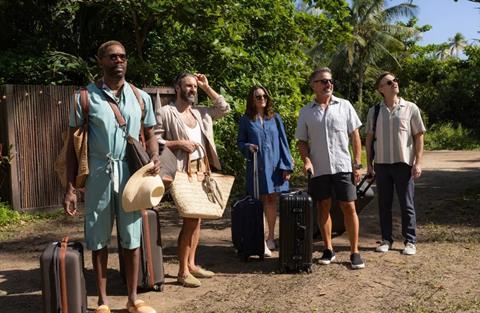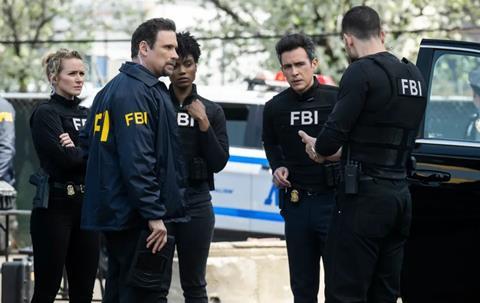Erin Underhill says US is showing increasing demand for lower-budget series

US streamers and networks have further trimmed what they are willing to spend on scripted series, with one-hour episodes costing less than $5m now a key sweet spot for producers.
Hollywood has seen a considerable reduction in demand for high-price tag series over the past year, with shows costing double-digit millions of dollars per episode increasingly rare, according to Universal Television president Erin Underhill.
“There’s a range now and there are still the projects that warrant hefty price tags - anything north of $10m - and those are happening, but they are happening fewer and farther between,” she told Broadcast International here at Series Fest in Denver. “They’re not nearly as commonplace as they once were.”

The chief of Universal TV, which is behind the likes of Hacks for Max, NBC’s St Denis Medical and Netflix’s Russian Doll, said her focus is to secure greenlights across a range of budgets.
“Now, you’re looking at things that are more in the $5m to $7m range getting greenlit but there’s also definitely an appetite for lower price-point shows, things that are hovering around and under the $5m mark and that’s on the one-hour side specifically.
“For us, we want to have a balanced portfolio - we want to make sure we have enough of the $5m and under, some of the £5m-$7m and, you know, for the right project with the right auspices, there might be something that’s more in that double-digit range although we really haven’t many of those recently.”
Big budget trap
Underhill is a 27-year veteran of Universal and parent NBCUniversal, who took the top job at Universal TV in 2020.
She presides over a raft of shows that includes the Law & Order and FBI franchises and recent Netflix launch The Four Seasons, but said that big-budget series were not a major focus at present.

“We really have been trying to be mindful because the more expensive your budget, the bigger the hurdle, if you will, for season two. Your ratings just have to be off the charts to justify the pickup for season two.
“It’s a bit of a Goldilocks situation - it can’t be too hot, too expensive, but neither can it be inexpensive. It has to look just right.
“We’re trying to thread that needle and really find the right price point for the creators to make the show that they want to make while having the quality that we all expect from a Universal series.”
Pilot uptick
Underhill also pointed to an uptick in pilot requests from streamers, nowhere near the double-digit number that they might have been produced 15 years ago, but an increase on more recent years.
“There’s still a lot of value in making a pilot, even for streamers. Sometimes when we’re selling them shows they might ask for a pilot step as opposed to going straight to series, it’s sort of like what’s old is new again.”
Underhill said she continues to see “value” in the pilot process, particularly with the prohibitive costs attached to stopping production after the first episode of shooting.

“A lot of times you look at the investment people have to make - buyers in particular - when you’re going straight to series. If you were able to - after the first episode and before the second episode - correct and make some adjustments, that would be great. But that is almost never part of the plan, because it’s just to cost-prohibitive.
“You might be able to go down [to set] for a week, but that’s really the extent of what you can do. So, I do see value in piloting. The deal-making can be a little tricky with streamers if they ask for a pilot step, so we’re still working through some of some of those business points.
“It’s specific to projects and I don’t know what the criteria is for them to ask for it, because I’m not I’m in on those conversations, but it’s not completely unheard of.”
Greenlight delays
Underhill also admitted that greenlight decisions are taking considerably longer, reversing the trend for quicker decision-making that had emerged in the peak TV era.
“There needs to be more buy-in on the platform side and you really need to make sure everybody is aligned.
“Back in the day, in the early days of Netflix, they didn’t have to run things up to every single person to greenlight something, but now there are just more eyeballs on material, which I get.
”It’s a big investment, so I understand why everyone wants to be rigorous around these decisions especially in a time where there are financial headwinds.”
Underhill also said streamers continue to ask for more than one script, which “isn’t necessarily new but is interesting”.
She added: “They’ll want a backup script or a series bible to track where the series goes, where the character arcs go. They want more material to assess before they make the financial commitment.”








No comments yet